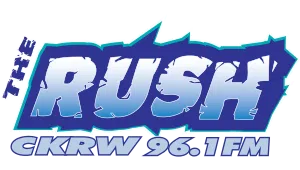
CKRW File photo of Minister of Environment Nils Clarke
Whitehorse, YT – After nearly a decade in development, new regulations on animal protection and control came into effect last Friday ushering in new prohibitions and enforcement measures geared towards updating Yukon’s guidelines for animal owners to national standards.
Minister of Energy, Mines and Resources John Streicker points out that the new act, which includes guidelines for pet and livestock owners as well as business owners, built upon important issues and values outlined in public surveys and community engagement before coming into effect on April 5th.
“I have seen how deeply Yukoners care about animal welfare,” said Minister Streicker. “I’m grateful for all the input and advice and proud to say that together we got to the finish line. Together we made the Animal Protection and Control Act and regulations and together we will implement them caring for the welfare of Yukon’s animals well into the future.”
Prohibited acts now include abuse, animal fighting, or training animals to fight as well as unconfined transportation methods and abandoning an animal after a vehicle strike. Chief Veterinary Officer Dr. Mary VanderKop from the Department of Environment says there were conversations before concluding to also prohibit cosmetic surgeries.
“De-clawing cats is really just about protecting your furniture, it’s not benefiting the welfare of the cat. The other one is de-barking dogs, which is again, for personal convenience,” said Dr. VanderKop. “Those are clearly on the side of prohibited and those are now specifically prohibited within the legislation.”
The Act also includes new species categories listing animals that are allowed, restricted, high-risk or prohibited with the Eurasian Boar now considered a prohibited animal. Feral animals, including cats, dogs and horses and now protected from unauthorized killing or capturing.
Businesses that handle or house animals including pet stores, boarding facilities and animal rescues will now require a $50 permit and will be subject to conditions including potential inspection from enforcement officers.
Officers will have powers similar to those under previous legislation such as inspection and investigation however this legislation is wider in scope and allows officers to issue orders to address violations. Notices, warnings, orders and inspections are seen as an alternative to immediately issuing tickets or charges.
“We’re not looking to have the enforcement officers go in and have our first response to somebody who isn’t meeting the requirements say, ‘We’re going to take your animals away,'” said Dr. VanderKop. “That’s not the objective of helping people to do better by caring for and controlling the animals that they own.”
If issuing orders and notices doesn’t work, officers can still issue tickets, take custody of animals, and potentially gather evidence to support laying charges. Maximum penalties for convictions are increased especially for serious offenses such as abuse or animal fighting.
The Agriculture Branch will be responsible for responding to concerns related to the care of livestock species while officers in the Animal Health Unit will handle concerns on all other species.







